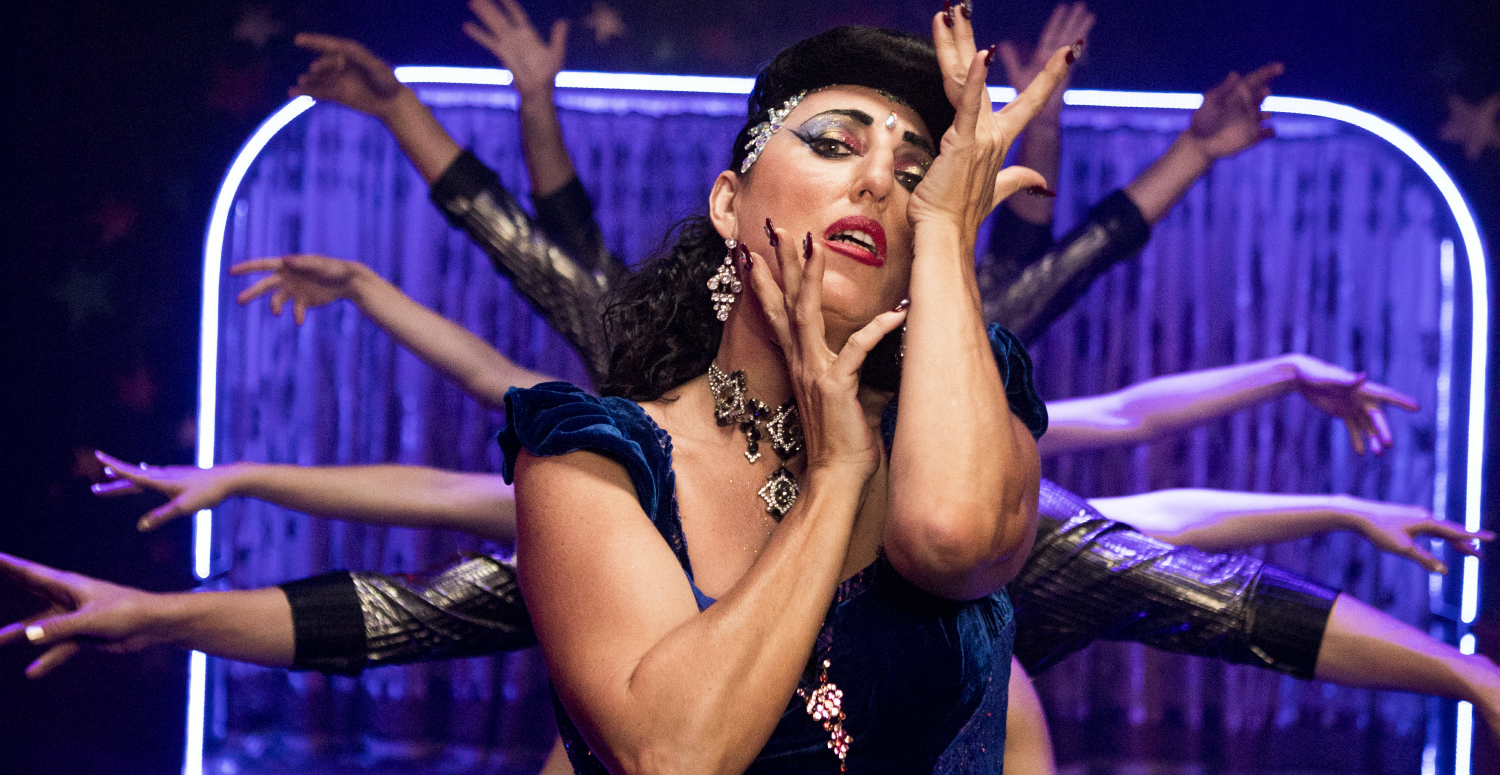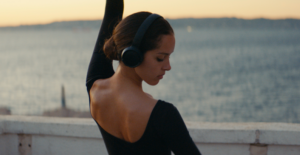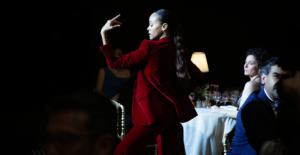Carmen
2023

FR EN
Célèbre opéra-comique de Georges Bizet aux airs – tels que « L’amour est un oiseau rebelle » ou « Toréador » – encore plus connus que la nouvelle de Prosper Mérimée dont il est adapté, « Carmen » se voit à nouveau transposé au cinéma dans un film franco-australien réalisé par Benjamin Millepied. Danseur étoile du New York Ballet, prix de Lausanne en 1994, puis chorégraphe et directeur du ballet de l’Opéra de Paris, il signe son premier film avec une adaptation assez désarmante.
Carmen est ici une jeune mexicaine tentant de traverser la frontière étasunienne qui tombe sur une patrouille de vigilantes américains dont Aidan, un ex-marine, fait partie. Cette nuit tragique va lier leur destin et les mener ensemble sur la route jusqu’au refuge de la Sombra Poderosa qui leur offrira comme un moment suspendu entre musique et danse. Melissa Barrera (D’où l’on vient ; Scream) et Paul Mescal (Normal People ; Aftersun) forment ce nouveau couple iconique aux côtés des actrices espagnoles Rossy de Palma et Elsa Pataky.
Ce n’est pas véritablement une adaptation de l’opéra « Carmen », le film de Benjamin Millepied change drastiquement l’histoire en la transposant dans un autre lieu, à une autre époque et sans reprendre les péripéties de l’intrigue originale. Son film est plus une adaptation thématique de « Carmen » reprenant ce désir de liberté, ainsi que certains éléments comme l’origine sévillane de la famille de Carmen ou le duo fille nomade et jeune soldat qui la laisse s’échapper ; mais il conserve avant tout l’esprit de l’opéra en mêlant son intrigue ancrée dans le réel avec des séquences de danse et de chants.
Le chorégraphe français ‘détragédifie’ (non ce ne mot n’existe pas) le mythe et filme la danse de l’exil et de la liberté dans une expérience artistique atypique centrée sur les corps des acteurs et la poussière sous leurs pieds. Ce film bilingue, principalement tourné en espagnol, est une ode aux corps avec son scénario minimaliste et son atmosphère hypnotique portée par une très belle bande-originale composée par l’excellent Nicolas Britell. L’enchaînement des séquences désarçonne quelque peu avec ses scènes de danse qui sont soit mal intégrées au scénario, soit flottent au milieu d’un récit avant tout sensoriel.
Georges Bizet’s famous opéra-comique, with melodies – such as “L’amour est un oiseau rebelle” and “Toréador” – even more popular than the short story by Prosper Mérimée from which it was adapted, “Carmen” is once again brought to the big screen in a Franco-Australian film directed by Benjamin Millepied. Danseur étoile with the New York Ballet, winner of the Prix de Lausanne in 1994, then choreographer and director of the Paris Opera Ballet, he directs his first feature film with a rather unsettling adaptation.
Here, Carmen is a young Mexican woman attempting to cross the U.S. border who stumbles upon a patrol of American vigilantes, including Aidan, an ex-Marine. This tragic night will entwine their destinies and lead them together on the road to the Sombra Poderosa nightclub, which will offer them a timeless moment between music and dance. Melissa Barrera (In the Heights; Scream) and Paul Mescal (Normal People; Aftersun) form this new iconic couple alongside Spanish actresses Rossy de Palma and Elsa Pataky.
Not really an adaptation of the opera “Carmen”, Benjamin Millepied’s film drastically changes the story, setting it in a different time and place, without revisiting the events of the original plot. His film is more of a thematic adaptation of “Carmen”, taking up this desire for freedom, as well as certain elements such as the Sevillian origins of Carmen’s family or the pairing of a nomadic girl and a young soldier who let her escape, but above all preserving the spirit of the opera by blending its real-life plot with dance and song sequences.
The French choreographer ‘detragedizes’ (no, this is not a word) the myth and films the dance of exile and freedom in an unorthodox artistic experience centered on the actors’ bodies and the dust beneath their feet. This bilingual film, shot mainly in Spanish, is an ode to the body, with its minimalist script and mesmerizing atmosphere driven by a beautiful soundtrack composed by the excellent Nicolas Britell. The succession of sequences is somewhat disconcerting, with dance scenes that are either poorly integrated into the script or simply float in the midst of a story primarily driven by the senses.

